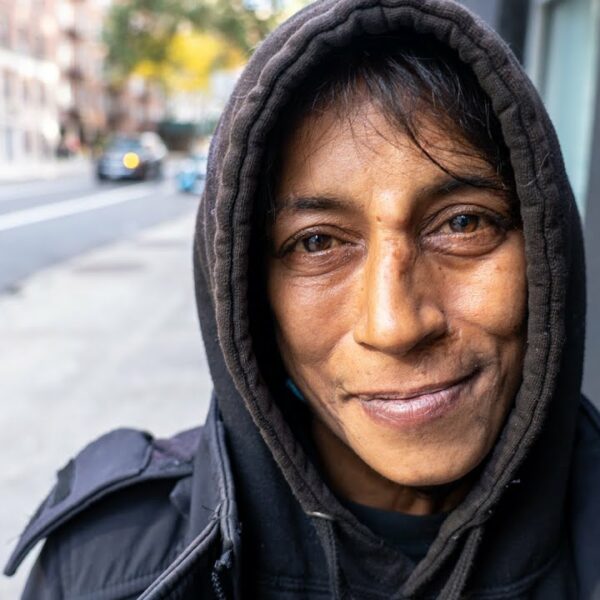Addressing the Homelessness Crisis with Record Breaking Funding, HUD Aims to Support Youth Homelessness Programs, Domestic Violence Survivors and More
The Biden-Harris Administration awarded more than $3.16 billion of federal Continuum of Care grants on January 29 to over 7,000 nationwide initiatives seeking to expand services and housing options for people experiencing homelessness.
The total represents the most ever awarded in the grant program’s history, according to the U.S. Department of Housing and Urban Development, which administers the program. It was released at a time when federal data shows more than 653,000 people experienced homelessness in 2023, a 12% increase year-over-year.
“Now, more than ever, we are doing all we can to get people off the street and into permanent homes with access to services,” HUD Secretary Marcia Fudge said in a press release. “That is why we are making sure the service providers on the frontlines of this crisis have the resources they need.”
HUD’s Continuum of Care grant program is considered one of the backbones of the homeless services industry. The grant can be used by nonprofit providers, state or tribal agencies, and local governments to develop short-term and permanent housing assistance programs, supportive services, strategic planning, data collection, and other costs.
States with the highest total homeless populations, like California, New York, Florida, and Texas, received the bulk of the disbursed grant funding.
California received more than $601 million; New York received more than $303 million; Florida received about $133 million; and Texas received more than $161 million. Altogether, these four states comprised about 37% of the total funding awarded. For comparison, the four states also account for more than half of all people experiencing homelessness in the U.S.
Administration Addresses Youth Homelessness
Approximately $136 million of the funding will support the Youth Homelessness Demonstration Program, a federal resource that selected rural, urban, and suburban communities can use to reduce youth homelessness.
The 2023 Point in Time count, which is conducted each year on one night in January, found more than 34,700 unaccompanied youths under the age of 25 experiencing homelessness. That figure represents a 15% increase year-over-year, meaning roughly 4,613 more children under the age of 25 are experiencing homelessness without a parent or guardian.
The YHDP funding could support youth shelters like the Huckleberry House in Columbus, Ohio, which increased the number of youths it sheltered last year to nearly 1,240 thanks to a $6 million YHDP grant from HUD, reported The Columbus Dispatch.
Sonya Thesing, the shelter’s executive director, told the newspaper that most youths don’t want to be sheltered with adults and need different support than adult shelters typically provide.
“Until the Youth Housing Demonstration Program, there wasn’t a youth-focused path to housing,” Thesing said. She added that the Huckleberry House model has helped 98% of youths who enter the program find and maintain housing for at least one year.
Supporting Survivors of Domestic Violence
Another $57 million of HUD’s latest Continuum of Care grant funding round will go toward building supportive housing for survivors of domestic violence, dating violence, sexual assault, or stalking. The National Alliance to End Homelessness says that about 10.4% of all emergency housing, transitional housing, and Safe Haven beds are reserved for survivors of these crimes and their families.
“Having an affordable place to call home is crucial for this population, to both reduce their risk of homelessness as well as the possibility of future violence. Research indicates that families that receive a housing subsidy after exiting homelessness are far less likely to experience interpersonal violence than those that do not,” according to NAEH’s website.
A recent study conducted by psychology professors at Michigan State University, Yale University, the University of Illinois in Chicago, and the University of Michigan at Ann Arbor found that Housing First models reduced feelings of depression and anxiety and improved housing stability for domestic violence survivors over a two-year period.
“The reason for that is that it provides low-barrier access to housing and supportive services,” said Cathy Alderman, chief communications and public policy officer for the Colorado Coalition for the Homeless. “I think what this study shows is that it remains one of the most highly effective ways to get people into housing and to keep them stably housed.”
How You Can Help
Now is not the time to be silent about homelessness in the U.S. or anywhere else. Unhoused people deserve safe and sanitary housing just as much as those who can afford rent or mortgage.
Poverty and homelessness are both policy choices, not personal failures. That’s why we need you to contact your officials and tell them you support legislation that:
- Streamlines the development of affordable housing
- Reduces barriers for people experiencing homelessness to enter permanent housing
- Bolsters government response to homelessness
Together, we can solve homelessness.













